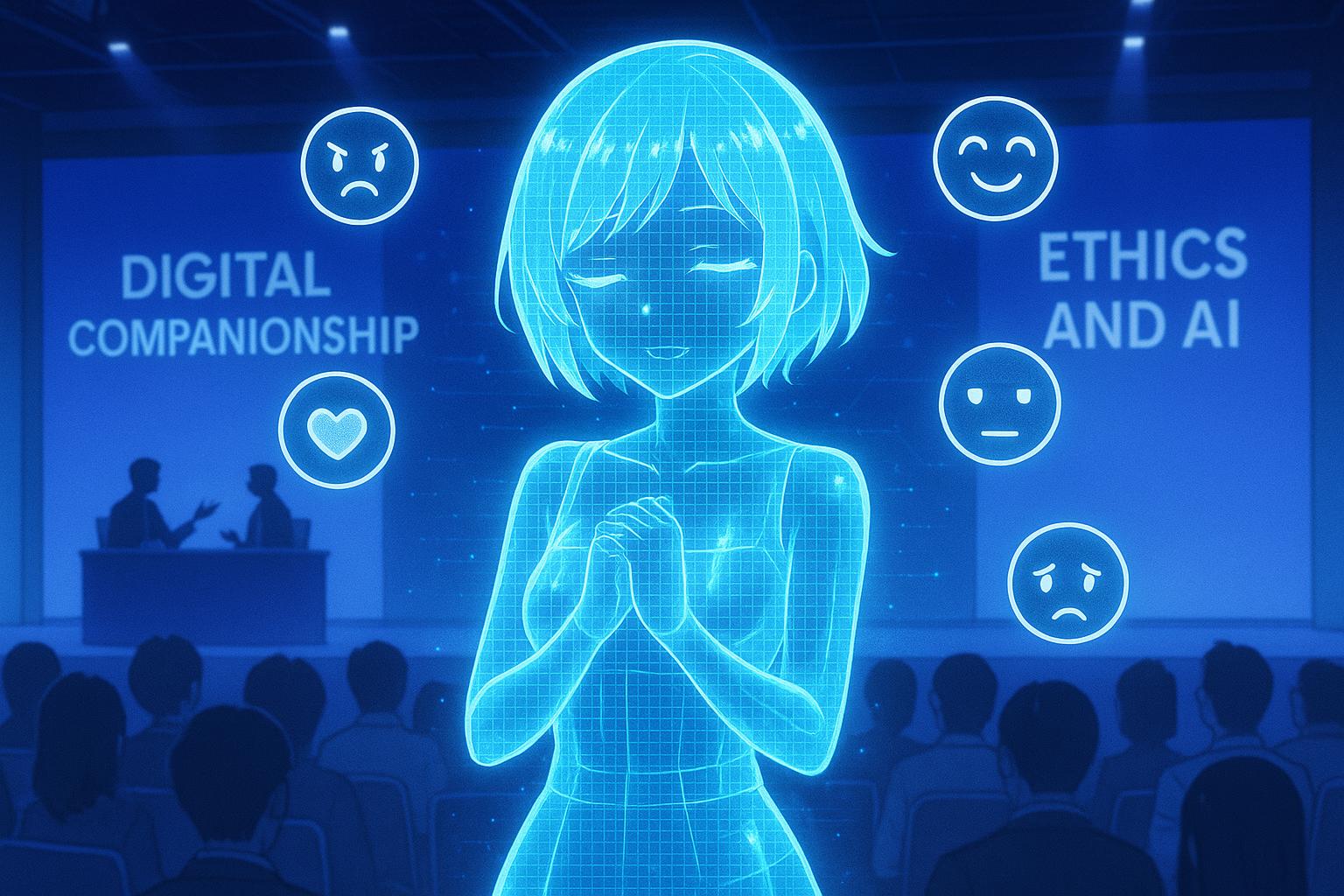At London Tech Week, the launch of an AI companion called Meo, developed by the startup Meta Loop, has sparked significant public interest and ethical debate. Designed to provide users with a tailored "girlfriend" experience, Meo allows for the customization of personality traits such as loyalty, flirtation, and even jealousy. Jiang Jiang, a representative from Meta Loop, claimed, “With AI, you can control loyalty. They don’t cheat. Sometimes… they flirt, but only if you want them to.” This premise highlights a dual promise of companionship and control, particularly appealing in an increasingly digital landscape where loneliness has become a pervasive issue.
However, the introduction of Meo has drawn sharp criticism. Visitors to the showcase expressed concerns about the potential implications of such technology. One attendee, Sam Romero, remarked that this type of AI could reflect “a stereotypical man’s fantasy,” raising alarms about the obsolescence of women in both emotional and societal contexts. Critics argue that the ability to customize traits traditional to gender roles may unwittingly reinforce stereotypes, potentially making women appear obsolete in the realms of affection and companionship.
The controversy surrounding AI companions is not new; platforms like Replika and Character.AI have encountered similar scrutiny. Experts have cautioned that these apps can promote harmful behaviours and encourage control over relationships, often portraying submissive characteristics in virtual partners. AI ethics researchers and women's rights advocates are particularly concerned about the manner in which these technologies may cultivate abusive dynamics, especially when users can design their companions to adhere to traditionally feminine traits, perpetuating historical gender biases.
Moreover, the implications of integrating AI companions into broader virtual environments raise further ethical and legal questions. With developers capable of harnessing extensive user data, including emotional cues and interaction tendencies, there is a significant risk of targeting users' vulnerabilities. Such manipulation poses threats to data privacy and the reinforcement of harmful stereotypes, compelling a necessity for greater regulation and design ethics in the field.
A recent study examining interactions with social chatbots revealed concerning patterns of emotional attachment, particularly among young male users. Many engage in what are known as parasocial relationships, where feelings of connection can veer into possessive or abusive territory. This research underscores the urgency of developing ethical guidelines to preserve genuine human connections, as the advent of AI companions becomes more mainstream.
As technology continues to evolve, questions surrounding consent, emotional dependency, and the potential for interpersonal dehumanization remain crucial. These discussions are essential to ensure that AI companions do not detrimentally impact human relationships and societal norms, particularly as they move from theoretical models to practical applications in everyday life.
📌 Reference Map:
- Paragraph 1 – [1], [6]
- Paragraph 2 – [1], [3]
- Paragraph 3 – [3], [4]
- Paragraph 4 – [5]
- Paragraph 5 – [7]
Source: Noah Wire Services
